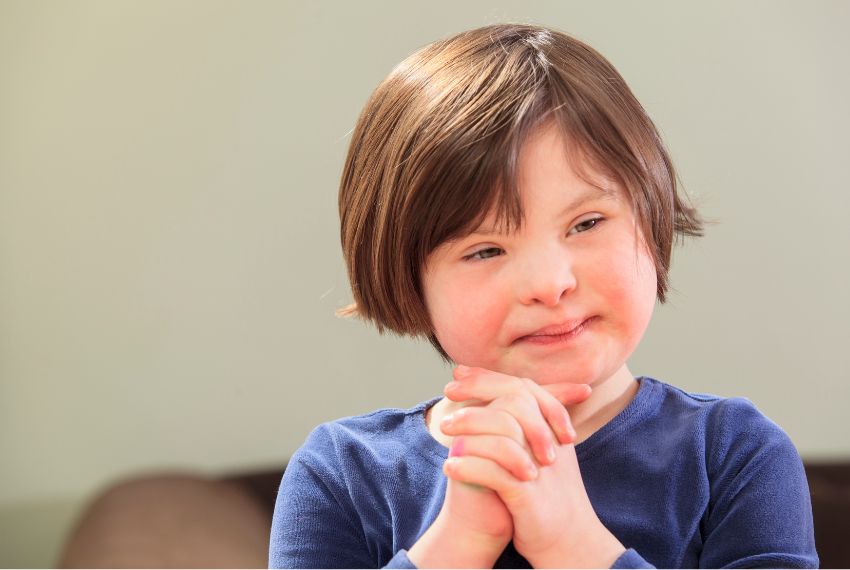Down Syndrome: How Does a Child Behave with this Disorder?
WHAT IS DOWN SYNDROME?
Down syndrome is a condition in which a person has an extra chromosome. This condition has an extra copy of chromosome- trisomy. Down Syndrome is also referred to as Trisomy 21, since chromosome 21 is affected by it. This extra copy changes how the baby’s body and brain develop, which cause both mental and physical challenges for the baby. Consult a doctor for finding the best alternatives for providing effective care for your child.
WHAT ARE SOME OF THE PHYSICAL FEATURES OF THE CHILD?
Here are some of the common physical features of Down Syndrome:
- A flattened face, especially the bridge of the nose.
- Almond-shaped eyes that slant up.
- A short neck.
- Small ears.
- A tongue that tends to stick out of the mouth.
- Tiny white spots on the iris of the eye.
- Small hands and feet.
- A single line across the palm of the hand.
- Small pinky fingers that sometimes curve toward the thumb.
- Poor muscle tone or loose joints.
- Shorter in height as children and adults.

WHAT ARE SOME BEHAVIORAL SYMPTOMS OF DOWN SYNDROME IN A CHILD?
Common learning and behavioral symptoms of Down Syndrome include:
- Delays in speech and language development.
- Attention problems.
- Sleep difficulties.
- Stubbornness and tantrums.
- Delays in cognition.
- Delayed toilet training.
HOW SHOULD ONE TAKE CARE FOR THE CHILD EFFECTIVELY?
In order to understand how one should proceed in taking care of the child, here are some of the ways in which proper care and attention should be given.
- The child is a child first.
When the child is born, make sure to let them know that they are wonderful no matter how the world outside says. As a child, self perceptions are crucial for the child to realize what role they have and what their goals in life are.
- There are different milestones for the child.
The child will have their own unique milestones to achieve. The parents must keep in mind that even if the journey of the child is different, it doesn’t mean that it isn’t significant. It is advised that there should be more motivation rather than comparison of the child’s successes to other children’s progress.
- There is a lot of support and help available for the child.
There is always help for the child who has special needs. There are many help groups which help the parents to work using different techniques to help the child grow and achieve and develop in overall aspects. Many professionals are available and are involved in providing EI services, including specialists in motor skills, language and communication, learning acquisition, and social-emotional development.
- There are beautiful moments in this case too.
At times the parent might feel overwhelmed in dealing with different demands the child might require while growing up. Understanding the fact that even if the process is slow, doesn’t imply that there is no growth at all. Patience is key.
- The child will experience a wide range of emotions.
There are a variety of emotions that the child will experience – happiness, sadness, anger, silly, whiny, hysterical, delighted – the same as any other child. This understanding helps the parent to deal with the child in a more caring manner.
- Frustrations can be good to get new ways for creative expressions while teaching.
Embracing the unique frustrations while teaching the child helps the parents to understand different ways for teaching. Using sign languages for example, can be an excellent way to do so.
- The child should be provided an open environment.
Even though the child may be born with the condition, it isn’t what they themselves become as an individual. Their whole life would depend on the type of support they get from their parents. Therefore, it becomes necessary for the parents to provide the child with ample support and care to get out their awkwardness and express themselves freely.
Down syndrome is a lifelong condition. Services early in life will often help babies and children with Down Syndrome improve their physical and intellectual abilities. Most of these services focus on helping the children with Down syndrome develop their full potential. Treatments such as speech, occupational, and physical therapy can help them grow holistically as individuals.
